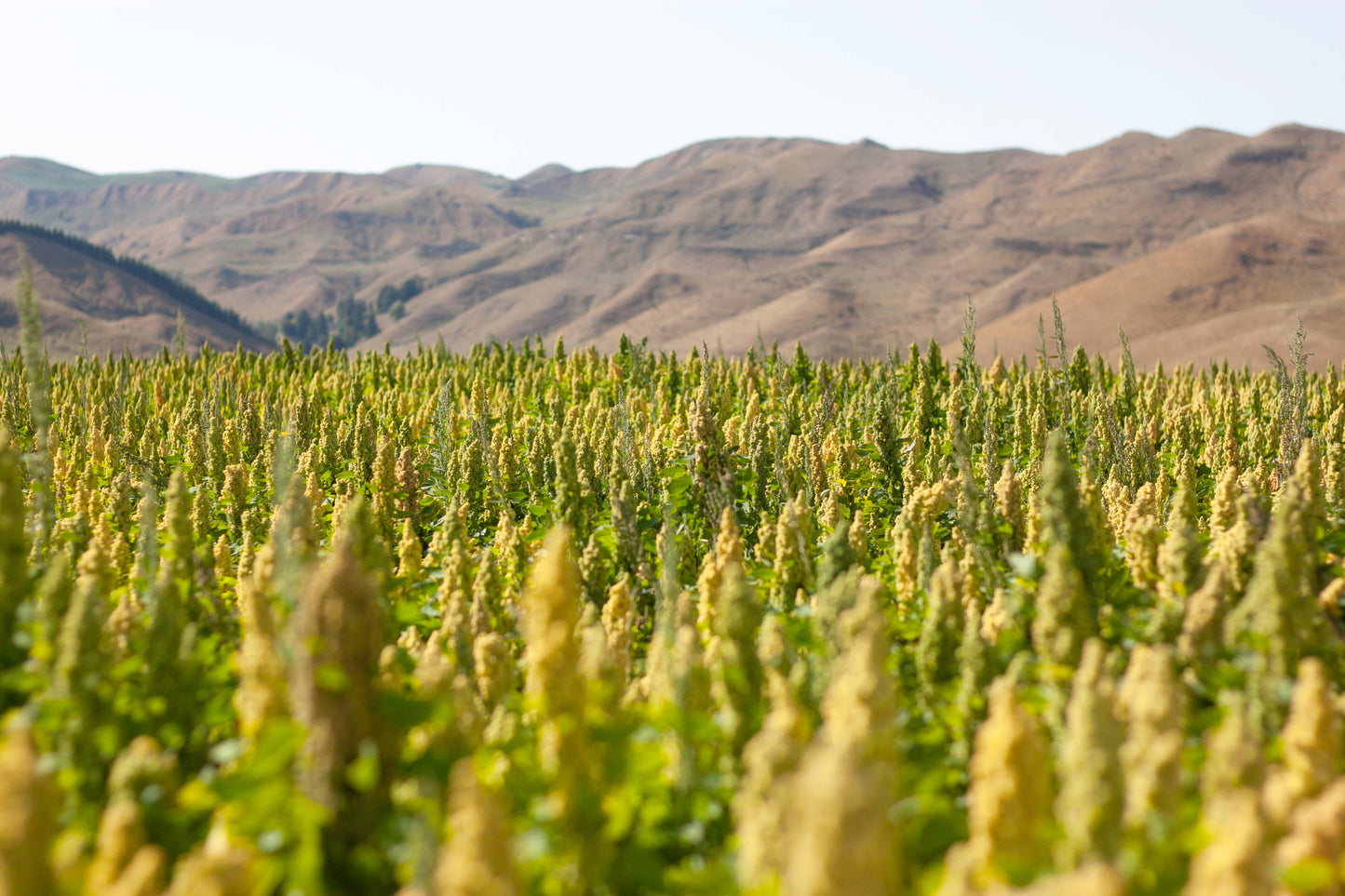
Quinoa is a versatile and nutritious crop that has gained popularity in recent years. It is a great alternative to traditional grains, and its cultivation has helped promote sustainable agriculture in many parts of the world. New Zealand is one of the countries that have embraced quinoa farming and is experiencing significant growth in this sector.
Quinoa is a relatively new crop in New Zealand, with commercial cultivation starting only in the last decade. However, the country's diverse geography and climate provide an excellent environment for quinoa farming. Farmers have been experimenting with different varieties and growing techniques to find the most suitable methods for their local conditions.
Quinoa farming uses sustainable agriculture practices that can provide economic and social benefits to local communities. It requires less water, fertiliser and agrichemicals than traditional grains, making it an environmentally friendly crop. Additionally, it is a high-value crop, meaning that farmers can earn more income from a smaller area of land.
The growth of quinoa farming in New Zealand is an excellent example of how sustainable agriculture practices can benefit both the environment and the economy.
The Economic and Social Benefits of Quinoa Farming on New Zealand Communities
Quinoa farming in New Zealand has not only provided economic benefits to farmers but also to the wider community. The high value of quinoa means that farmers can earn a competitive income (similar to other high value crops), which can then be reinvested into their farms and local businesses. The growth of the industry has created job opportunities in farming, processing, and distribution. This, in turn, supports other local businesses, such as transportation, packaging, and marketing.
Moreover, quinoa production in New Zealand has also had social benefits for local communities. It has provided an opportunity for people to learn new skills and participate in a new and exciting industry. It has also provided a food connection for the wider community who now openly celebrate and consume quinoa on a regular basis. Local NZ communities thrive on supporting local producers but also consuming nourishing and tasty food.
As a superfood, quinoa is high in protein, fibre, and essential vitamins and minerals. Its popularity among health-conscious consumers has helped to promote healthier eating habits and lifestyles.
The economic and social benefits of quinoa farming in New Zealand communities highlight the importance of sustainable agriculture practices that can support both the environment and the local economy. Quinoa farming provides an excellent example of how sustainable practices can lead to economic growth and job creation while also promoting sound environmental practices.
Challenges and Opportunities for Quinoa Farming in New Zealand
Despite the numerous benefits of quinoa farming, there are also challenges that farmers in New Zealand face. One of the main challenges is the weather conditions. Quinoa is a crop that thrives in a climate where summer temperatures don’t exceed 30 degrees Celsius. It likes a relatively dry climates, which can be difficult to replicate in New Zealand’s warmer, more humid higher rainfall regions.
Another challenge is the competition from other countries. Quinoa is now grown in over 90 countries around the world, which means that New Zealand farmers face stiff competition in the global market. This can make it difficult for local farmers to sell their crops at competitive prices.
Despite these challenges, there are also many opportunities for quinoa farming in New Zealand. As the demand for healthy and sustainable food grows, there is an increasing market for quinoa and other similar crops. Additionally, New Zealand's reputation as a producer of high-quality food products means that there is potential for the country to become a leader in quinoa production and value-add quinoa products such as extruded quinoa and quinoa flours etc.
Quinoa farming is having a positive impact on New Zealand communities, both economically and socially. There are still numerous challenges that need to be addressed, including matching quinoa varieties to the climatic conditions, setting up infrastructure for value add opportunities and managing competition from other countries. The quality of the quinoa grown in New Zealand is excellent and this sets it apart from production from other nations. Nonetheless, the potential benefits of quinoa farming make it a promising crop for the future of New Zealand agriculture.
